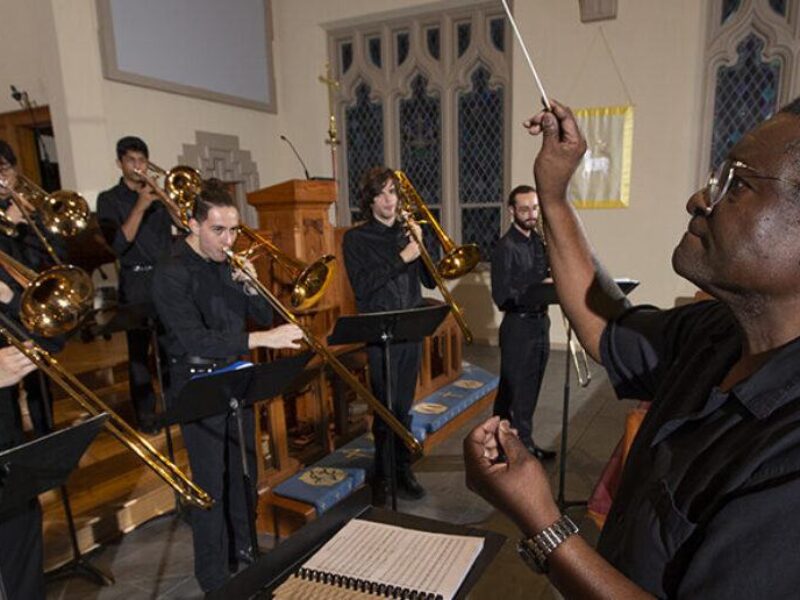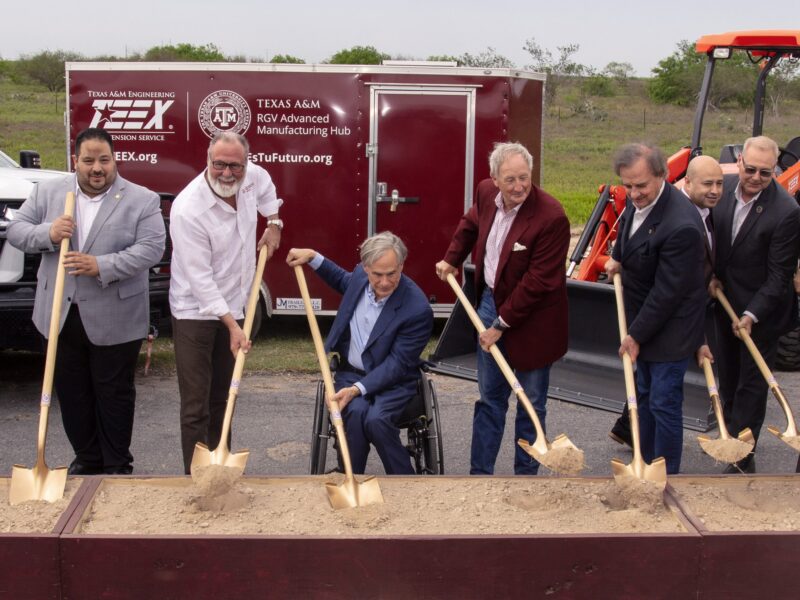How Is The Pandemic Evolving?

Between the surging Delta variant, breakthrough infections in vaccinated individuals and evolving guidance around masking and booster shots, the dynamics of the COVID-19 pandemic continue to change 18 months into the crisis.
Texas A&M Today spoke with virologist Benjamin Neuman about some of the latest developments in the pandemic. Neuman is the chief virologist at the Texas A&M University Global Health Research Complex.

What does full FDA approval for COVID-19 vaccines really mean?
On Monday, the Food and Drug Administration gave full approval to the Pfizer/BioNTech COVID-19 vaccine for people 16 and older. Previously, all available versions of the vaccine in the U.S. had been distributed under emergency use authorizations.
Effectively, Neuman said, the full approval functions as a vote of confidence from the FDA in the Pfizer/BioNTech vaccine.
“To their satisfaction, there’s enough data to be certain enough about the effectiveness and safety of the vaccines,” he said. “In practical terms, it really doesn’t make any difference. You’ll get the same vaccine now that it’s been approved as you would have before.”
While the Johnson & Johnson and Moderna vaccines are still awaiting approval, Neuman said it’s mostly a matter of how quickly the paperwork can be processed.
The approval from federal regulators could help sway some holdouts toward getting vaccinated, he said. For those who have being waiting for an OK from the FDA before making a decision, “this ought to go some way toward clearing up their hesitancy,” Neuman said.
“It would make me so happy to see an increase a demand, and this was the stumbling block that people have been saying was in the way of greater vaccination,” he said.
The approval could also lead to vaccine uptake prompted by vaccine requirements from corporations, school boards and other organizations. Neuman said they now have a now have a freer hand to mandate vaccinations, at least in areas where not prohibited from doing so by governor’s orders. In Texas, for example, Gov. Greg Abbott announced on Wednesday an executive order banning COVID-19 vaccine mandates regardless of whether they have full FDA approval.
What’s the strategy behind booster shots?
U.S. health officials have announced plans to offer COVID-19 booster shots to vaccinated Americans to increase their protection. The doses are recommended eight months after people get their second shot of the Pfizer or Moderna vaccine. People who got the single-dose Johnson & Johnson vaccine will also likely need additional doses, officials say.
Neuman explains that many childhood vaccines, like those for polio, require as many as four doses. With the polio vaccine, a third dose provides 99 percent immunity, and a fourth dose provides immunity for life.
The COVID-19 mRNA vaccines appear to have a similar efficacy per dose, at least for the first two doses, he said.
“So I’m not really thinking of them as boosters – I’m thinking of them as completing the series of what’s probably going to be three to five shots,” Neuman said. “We’re just not sure yet how many it’s going to take. The indication is that immunity is a little more durable than we thought previously, which is good news, and that means we may actually be able to get to a point where you are not just vaccinated for now, you’re actually vaccinated for good.”
While the 90 percent protection provided by two doses is still “really fantastic” – and on par with the most effective vaccines ever produced – Neuman said that still leaves a 10 percent risk for contracting the virus, which is significant considering the tens of millions of people who have been vaccinated, as well as the millions of unvaccinated individuals who are unprotected.
“There are people who are vaccinated who are getting infected, and this third and potentially fourth dose would go a long way toward cleaning up and eliminating that,” Neuman said. “It’s like a game of Risk we’re playing, only it’s with peoples’ lungs. We’re trying to take up as much territory with vaccine as possible so that the virus cannot operate there.”
Do booster shots need to be from the same brand as the initial round of vaccines? What could the side effects be?
While it’s too early to say with scientific certainty that mixing and matching vaccines is safe – since the data hasn’t been gathered – Neuman said it likely won’t matter if someone decides to switch brands for their booster shots.
“All of the vaccines that are available in the U.S. use three different ways to make exactly the same version of exactly the same spike protein,” he said. “In terms of what your immune system sees, there’s no difference. They all produce the same immunity.”
In Israel, where third doses have been administered for a little over a month, the side effects have been about the same as those experienced during the second dose. Neuman said that those side effects, which can include fever, chills, tiredness, headache and pain at the injection site, are still “nothing compared to COVID-19.”
Why has the head of the World Health Organization called for a moratorium on booster shots?
The ethics of administering booster shots in the U.S. while other countries struggle to provide citizens with even a single dose have been called into question. On Monday, WHO Director-General Tedros Adhanom Ghebreyesus called for a two-month moratorium on administering booster shots, citing global vaccine inequality and the need to prevent the emergence of new coronavirus variants.
Neuman explains that vaccine access is a global issue. In addition to the issue of equitable vaccine distribution in developing countries, the virus will continue to change and make new variants anywhere it’s able to grow.
“Just as they saw in New Zealand and Australia, as long as there’s travel, no matter how limited into or out of a country, eventually the virus is going to work its way in if you give it enough time,” he said. “So we’ve got to knock this thing out everywhere before everybody’s really safe. You have to remember not to hold the parade too early.”
Should I be wearing a mask around other people, even if I’m vaccinated?
“If there are other people around, I am wearing masks all the time,” Neuman said. “There is enough virus circulating in Texas right now that you’re essentially not safe anywhere that you would go. It’s a very good time to have a mask.”
He compares it to putting on a seatbelt when getting into a car with airbags. Even for vaccinated people, Neuman recommends wearing a mask indoors: “they’re both going to keep you safe.”
Are there any new variants to watch out for?
There are two more variants that will likely be given Greek-letter names soon, Neuman said. He said that when a new variant emerges, it’s comparable to the same mutations popping up on a different branch of a family tree.
“The virus is changing on the outside, but it looks as though it may be somewhat limited in the way it can change, because it’s not coming up with new solutions,” he said. “It is sort of rehashing old solutions, and we know the vaccines work pretty well against all the variants that have come up so far.”
While the virus is increasing in efficiency in variants like the highly-contagious Delta, the part that’s changing doesn’t have anything to do with how it interacts with vaccines, Neuman said. This hopefully means that changes to the virus won’t pose new threats to the available vaccines.
“This isn’t going to guarantee that the virus is going to stay pending like this forever, but for now it looks as though all the variants that we’re seeing, and all the likely variants, are going to be very much able to be stopped by the vaccine,” he said.
Media contact: Caitlin Clark, caitlinclark@tamu.edu





